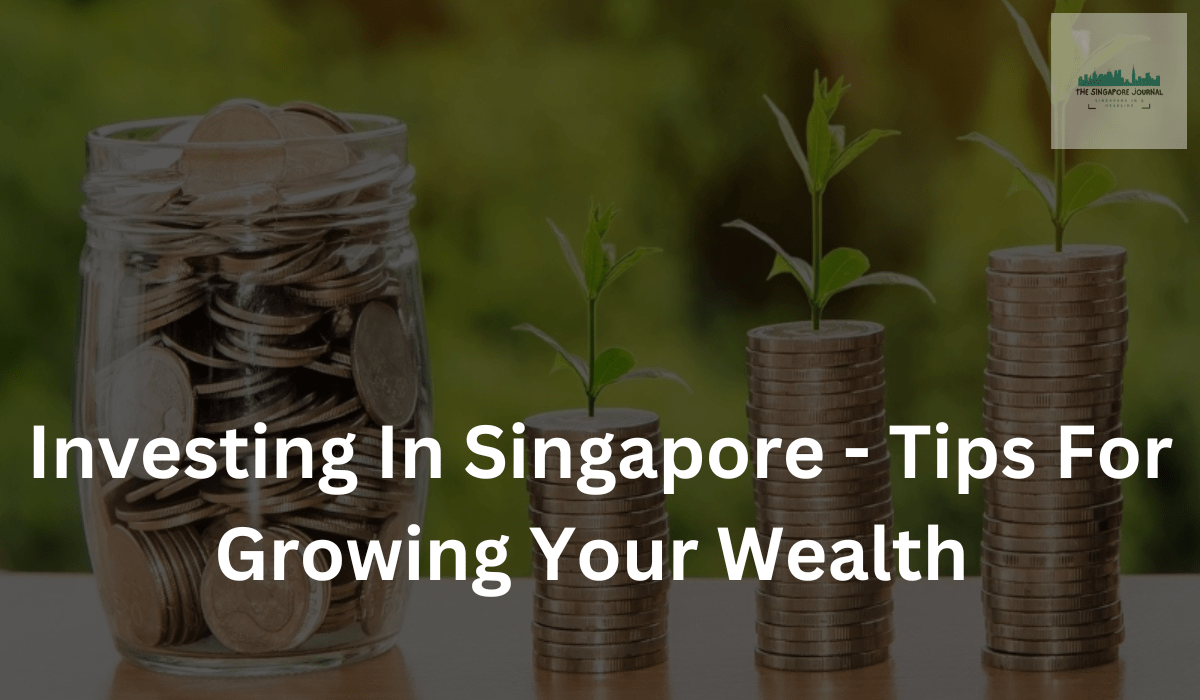Singapore is known for its stable economy, efficient governance, and pro-business environment, which makes it the most anticipated destination for investors seeking to grow their wealth. However, investing in Singapore requires careful planning, strategy, and knowledge, like any other investment. In this blog, we will discuss tips for growing wealth through investing in Singapore.
Tips for growing wealth through investing in Singapore

1. Have a good savings habit
Initiating a good saving habit will help you in growing your wealth. Savings are the bedrock that enables you to make investments with a higher risk in your financial journey. It will help you treat yourself with luxuries and allow you to take a leap of faith to start your own business.
2. Diversify your Investments
One of the golden rules of investing is to diversify your portfolio. Diversification helps to spread the risk across different assets and industries, reducing the impact of any single investment on your overall portfolio. You can invest in various assets in Singapore, including stocks, bonds, mutual funds, real estate, and commodities. To diversify your portfolio, you can invest in a mix of these assets based on your risk tolerance, investment goals, and time horizon.
Investing in Unit Trust can offer higher returns compared to lower-risk fixed-income products. With the help of Unit Trust, you can select the more advisable fund for your investment needs.
3. Stay updated on the market trends
The investment landscape is dynamic, and market trends can change quickly. To make informed investment decisions, staying updated on the latest market trends and developments is crucial. Keep an eye on the Singapore stock market index (Straits Times Index), read financial news, and follow expert opinions. You can also attend investment seminars, workshops, and conferences to gain insights into the market and network with other investors.
4. Set up a regular savings plan
It takes time and effort to grow your investment portfolio. You can invest easily by using a regular savings plan( RSP). It ensures that a fixed amount of money is invested in a specific product each month.
RSPs involve a plan known as a dollar-cost – averaging and help investors to take away the emotional aspect of investing. An RSP ensures you make investments regularly by growing your portfolio slowly and steadily.
5. Choose a reputed broker
A broker is an intermediary who facilitates your investments in the market. Choosing a reputable broker who can offer you sound advice, efficient trading tools, and competitive pricing is crucial. Look for a broker licensed by the Monetary Authority of Singapore (MAS), has a good track record, and offers a range of investment products that help you with your investment goals. You can compare the fees and services of different brokers before choosing one.
6. Invest for the long-term.
Investing in Singapore requires patience and a long-term perspective. Singapore’s economy has a steady growth and resilience history, but it is not immune to market fluctuations and external factors. To grow your wealth through investing, it is essential to adopt a long-term approach and not get swayed by short-term volatility. You can also consider investing in blue-chip stocks or exchange-traded funds (ETFs) that offer stable returns over the long term.
7. Take advantage of tax incentives.
Singapore offers several tax incentives to encourage investment and business growth. As an investor, you can use these incentives to reduce tax liabilities and grow wealth. For example, you can invest in the Supplementary Retirement Scheme (SRS), which offers contributions, withdrawals, and investment tax benefits. You can also invest in approved funds, such as the Singapore Government Securities (SGS) and the Asian Bond Fund (ABF), that offer tax exemptions on interest income.
8. Consider any real estate investments.
Real estate is a popular asset class for investors in Singapore, given the country’s robust property market and stable rental income. You can invest in residential or commercial properties through direct ownership or real estate investment trusts (REITs). Before investing in real estate, conducting thorough research, evaluating the market trends, and assessing the risks and returns is essential. You should also factor in the maintenance costs, taxes, and other charges associated with owning a property.
9. Avoid emotional decisions
Investing can be an emotional journey; staying rational in your decision-making is essential. Avoid making impulsive decisions based on market noise, rumors, or emotions. Stick to your investment plan, follow a disciplined approach, and review your portfolio periodically. You can also seek professional advice or guidance from a financial planner or investment advisor to stay on track.
10. High-yield savings account for your emergency funds
Strive to have sufficient emergency funds before you start to invest. Emergency funds will deliver a safety net if you are out of work. You can also pick the right savings account to stick your cash- one that rewards you with the proper interest to protect your savings from inflation eroding.
Conclusion
Investing in Singapore can offer attractive opportunities for growing wealth but requires careful planning, knowledge, and discipline. You can effectively save and support, which will help in yielding fantastic returns, thereby allowing you to invest in many things.

